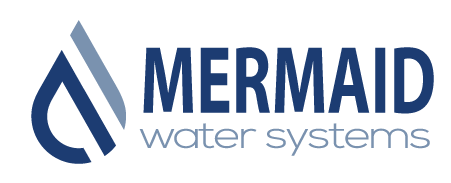Revolutionizing Water Systems: How Innovative Technologies are Transforming Access to Clean Water
 Clean water is one of the most essential resources for human survival, yet millions of people around the world still lack access to this basic necessity. However, thanks to innovative technologies, that reality is starting to change. In this article, we will explore how these groundbreaking technologies are revolutionizing water systems and transforming access to clean water.
Clean water is one of the most essential resources for human survival, yet millions of people around the world still lack access to this basic necessity. However, thanks to innovative technologies, that reality is starting to change. In this article, we will explore how these groundbreaking technologies are revolutionizing water systems and transforming access to clean water.
The Importance of Clean Water Access
Access to clean water is crucial for human health and well-being. It is essential for drinking, cooking, hygiene, and agriculture. Unfortunately, many regions around the world struggle with water scarcity, contamination, and inadequate infrastructure. According to the World Health Organization (WHO), around 785 million people still lack basic drinking water services. This has severe implications for public health, leading to the spread of waterborne diseases and other health issues.
Challenges in Traditional Water Systems
Traditional water systems face numerous challenges when it comes to providing clean water to communities. Aging infrastructure, inefficient distribution networks, and limited resources make it difficult to ensure clean water access for all. Moreover, natural disasters, such as floods and droughts, can further exacerbate these challenges, leaving communities vulnerable and without access to safe water.
Desalination: Turning Seawater into Drinking Water
Desalination is a process that converts seawater into freshwater by removing the salt and other impurities. This technology has the potential to provide a sustainable source of drinking water, especially for coastal regions with limited freshwater resources. Desalination plants use various methods such as reverse osmosis and distillation to separate the salt from the water, resulting in clean and potable water.
Desalination plants are becoming increasingly efficient and cost-effective, making them a viable solution for addressing water scarcity. Countries like Saudi Arabia and Israel have successfully implemented large-scale desalination projects, significantly reducing their dependence on freshwater sources. However, the high energy consumption and environmental impact associated with desalination remain challenges that need to be addressed.
Water Filtration Systems: Removing Contaminants from Water Sources
Water filtration systems play a crucial role in ensuring access to clean water. These systems are designed to remove contaminants, such as bacteria, viruses, chemicals, and pollutants, from water sources. Advanced filtration technologies, such as activated carbon filters, ceramic filters, and membrane filtration, are highly effective in purifying water and making it safe for consumption.
Filtration systems can be implemented at various levels, from individual households to community-wide installations. They are particularly beneficial in areas with poor water quality or limited access to clean water sources. Filtration systems not only improve the quality of drinking water but also provide a reliable and sustainable solution for irrigation and other agricultural practices.
Smart Water Meters: Efficiently Managing Water Usage
Smart water meters are innovative devices that enable efficient management of water usage. These meters use real-time data collection and analysis to monitor water consumption, detect leaks, and optimize water distribution. By providing accurate and timely information, smart water meters help individuals and communities make informed decisions about their water usage, leading to better conservation practices and reduced water waste.
Smart water meters can also be integrated with smart home systems and mobile applications, allowing users to track their water usage and receive alerts about potential issues. This promotes greater awareness of water consumption patterns and encourages responsible water management.
Rainwater Harvesting: Utilizing Natural Resources for Water Supply
Rainwater harvesting is a sustainable practice that involves collecting and storing rainwater for later use. It is an effective way to utilize natural resources and reduce reliance on traditional water sources. Rainwater can be collected from rooftops, surfaces, and even underground catchment systems. It can then be filtered and treated for various purposes, such as drinking, irrigation, and sanitation.
Rainwater harvesting systems can be implemented at different scales, from individual households to large-scale community projects. They provide a cost-effective and environmentally friendly solution for water supply, especially in areas with limited access to freshwater sources. Additionally, rainwater harvesting promotes self-sufficiency and resilience, particularly in regions prone to droughts or water scarcity.
Mobile Water Treatment Units: Providing Clean Water in Remote Areas
Mobile water treatment units are portable systems that can be deployed to remote and underserved areas to provide clean water. These units are designed to be compact, easy to transport, and capable of treating water from various sources, including rivers, lakes, and wells. They typically employ a combination of filtration, disinfection, and purification technologies to remove contaminants and ensure the safety of the water.
Mobile water treatment units are particularly essential in emergency situations, such as natural disasters and humanitarian crises, where access to clean water is disrupted. They can also be used for temporary water supply solutions, such as during festivals, camping trips, or construction projects. These units enable quick and efficient deployment of clean water resources to those in need, saving lives and improving overall health.
Impact of Innovative Water Technologies on Communities
The implementation of innovative water technologies has a significant impact on communities worldwide. Access to clean water not only improves public health but also enhances economic opportunities, education, and overall quality of life. Communities with reliable access to clean water can focus on development, agriculture, and other essential activities, driving local economies and improving living standards.
Innovative water technologies also contribute to environmental sustainability by promoting efficient water usage, reducing pollution, and conserving natural resources. These technologies support sustainable farming practices, enable ecosystem restoration, and mitigate the impacts of climate change. By utilizing advanced filtration systems, smart meters, and other innovative solutions, communities can ensure the long-term availability of clean water while preserving the environment for future generations.
Conclusion: The Future of Clean Water Access
Innovative technologies are revolutionizing water systems and transforming access to clean water around the world. From advanced filtration systems to solar-powered purification units, engineers and researchers are developing cutting-edge solutions to tackle water scarcity and contamination. These technologies not only provide clean drinking water but also enhance irrigation systems, support sustainable farming practices, and promote overall environmental health.
By harnessing the power of data analysis and artificial intelligence, these new systems can effectively monitor water quality, detect potential contaminants, and optimize distribution networks. This ensures that communities receive safe and clean water on a consistent basis, even in remote areas. The future of clean water access is being reshaped for the better, offering hope for a world where every individual has the basic right to clean and safe water.
